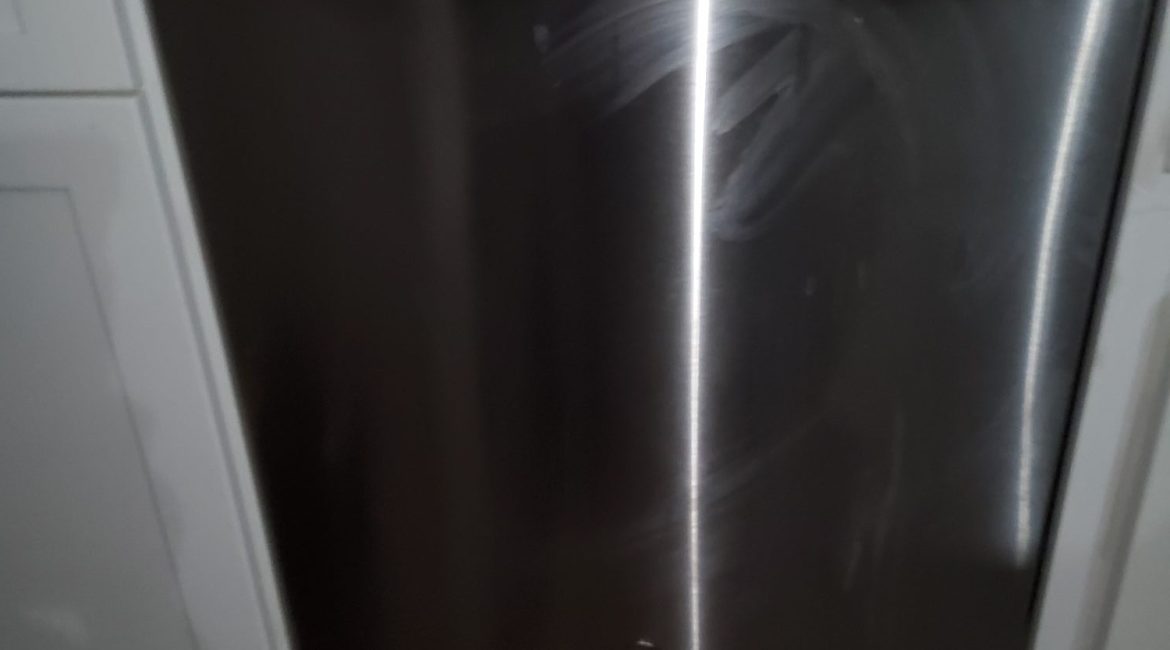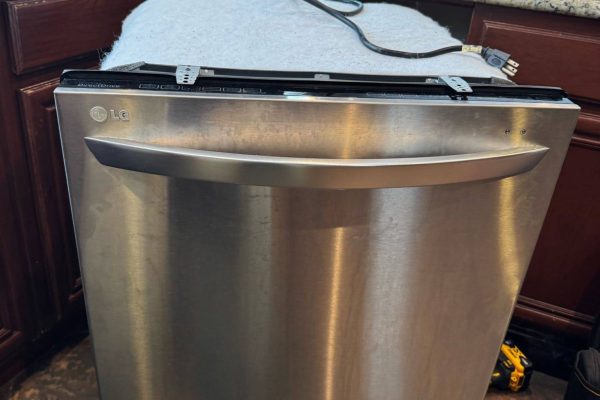A dishwasher that fails to effectively remove grease from pans can be frustrating. After all, you’ve placed your dirty dishes into the machine with high hopes for spotless results, only to find stubborn grease still clinging to your cookware. It can be tempting to blame it on a poor-quality detergent, but the issue is often more complex. Here’s a deeper look into why your dishwasher might be struggling to tackle grease—and why it’s not just a bad detergent.
1. Clogged or Dirty Spray Arms
One of the most common causes of inadequate cleaning is a clogged or dirty spray arm. These components are responsible for directing water to wash your dishes. Over time, food debris and mineral buildup can block the small holes in the spray arm, reducing the water pressure and affecting the dishwasher’s ability to remove grease.
To check the spray arms, remove them from the dishwasher, inspect for any clogs, and clean the holes with a small brush or toothpick. Regular cleaning of spray arms can prevent grease buildup from becoming a recurring issue.
2. Malfunctioning or Dirty Filters
Dishwashers come equipped with filters that trap food particles and debris. However, if these filters are clogged or dirty, they may not perform their job effectively. As a result, food particles, grease, and soap scum may remain in the wash cycle, leaving your pans coated with residue.
Ensure that your dishwasher’s filter is cleaned regularly, especially if you’re washing a lot of greasy dishes. Depending on the model, the filter may need to be removed and rinsed, or it may require more thorough cleaning with warm water and dish soap.
3. Inadequate Water Temperature
Dishwashers generally require water temperatures of 120 to 150°F to dissolve grease and food particles effectively. If your dishwasher isn’t getting hot enough, it may struggle to break down grease, leaving it stuck to your pans. Water that’s too cold may also prevent detergent from dissolving properly, further affecting performance.
To resolve this issue, ensure that your water heater is set to an appropriate temperature. If the temperature is fine, but the dishwasher still fails to get hot enough, there may be an issue with the heating element or the thermostat.
4. Incorrect Loading
How you load your dishwasher can significantly impact its cleaning effectiveness. If pans, pots, and dishes are stacked too closely together, water may not reach every surface, leaving grease behind. Likewise, heavy-duty cookware should be placed on the bottom rack for better water pressure. Overloading the dishwasher can also restrict water flow, causing cleaning issues.
Make sure to follow your dishwasher’s guidelines for loading dishes. Avoid overloading the racks, and place grease-prone items where they can receive the most direct water spray.
5. Improper Detergent Use
While detergent is rarely the main culprit, improper detergent usage can still contribute to poor washing results. Using too much detergent can cause a soapy residue to build up on your dishes, while using too little detergent might not be enough to break down grease. The wrong type of detergent can also be less effective on greasy pans, particularly in hard water areas.
Check the manufacturer’s guidelines for the correct amount of detergent based on your water hardness. Consider using a grease-fighting detergent designed for tough jobs if your pans regularly come out with grease marks.
6. Hard Water Buildup
In areas with hard water, mineral deposits like calcium and magnesium can accumulate inside the dishwasher, clogging the spray arms and affecting cleaning performance. These minerals can also leave spots and residue on dishes, making grease removal even more difficult.
Consider using a water softener or a dishwasher descaler to remove mineral buildup. Regular maintenance can go a long way in preventing these issues from impacting your dishwasher’s performance.
7. Dishwasher Wear and Tear
Finally, if your dishwasher is aging or experiencing wear and tear, it may simply not be able to perform as effectively as it once did. Issues like a worn-out pump, broken heating element, or malfunctioning motor could reduce its cleaning power. Over time, the dishwasher’s ability to handle grease decreases, leading to unsatisfactory results.
If your dishwasher has been in use for many years or has recently started showing signs of wear, it might be time to have it inspected or repaired by a professional. Routine maintenance can prolong its lifespan and help avoid long-term issues with cleaning performance.
If your dishwasher isn’t removing grease from your pans, it’s not just about the detergent. From clogged spray arms to temperature issues, multiple factors can affect your dishwasher’s ability to perform well. Regular maintenance and cleaning, along with proper loading and detergent use, can make a big difference. However, if you’re still facing issues, it’s essential to call in a professional to identify and resolve the problem.
If you’re in need of expert dishwasher repairs, don’t hesitate to contact the Oceanside Appliance Service Center. Our technicians can quickly diagnose the issue and restore your dishwasher to peak performance.
Contact us


